When it comes to preparing food, most of us will admit to being a little bit clueless about best practice.
Whether the food is grown in the ground or stored and transported in poor conditions, there are so many opportunities for the things we eat to become contaminated with harmful bacteria.
Today we're sharing which foods you absolutely should wash, and those you really shouldn't.
What should you be washing?

Before we get into a list of all the foods you really do need to wash, we should say that you should never use soap or bleach in the washing process. Soap and bleach can be really harmful to our bodies, so shouldn't be used in food preparation.
If you want to add some extra strength to your soaking, we suggest using a bit of vinegar mixed into water. It has brilliant disinfecting properties that can help reduce pesticides!
1. Nuts, seeds & dried fruit
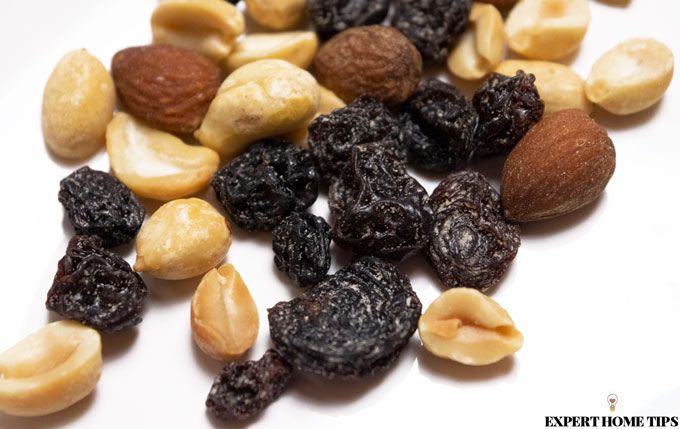
This one might take you by surprise. You should be washing nuts, seeds, and dried fruit before eating unless the packaging states that they are ready to eat. This is especially true if you have purchased them loose. Even if the nuts and seeds have been peeled, you just don't know what could have happened during storage or transportation.
Nuts are coated in a pesticide called phytic acid, so washing them also helps to remove the harmful substance.
2. Shellfish
Shellfish are full of hidden nasties that you don't want to eat. They can be really tough to clean properly as they could be full of sand and grit.
How to wash shellfish:
The way to clean shellfish is to rinse the worst of the debris off under running water and then to drain and place in a pot of cold water. Add a few pinches of salt and place the pot in the fridge for at least an hour. Give the contents a couple of stirs throughout the chilling process.
Drain the shellfish again and notice how much sand and grit comes off. Imagine if you'd eaten all of that!
Finally, give the outer shells a good scrub and carefully remove any remaining debris.
3. Grains
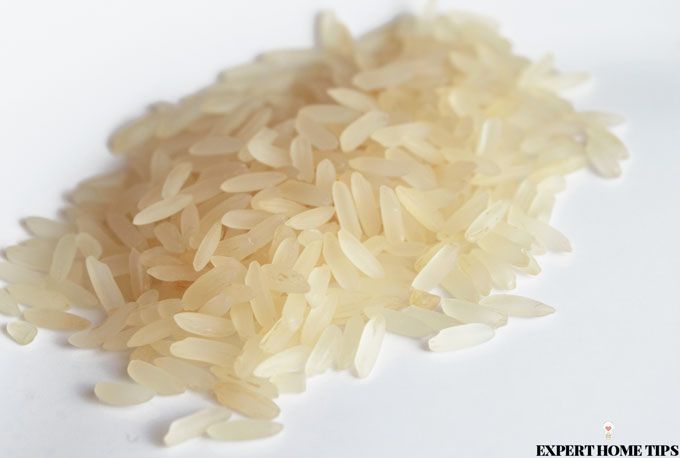
Grains such as rice and quinoa should be rinsed thoroughly before cooking to remove excess starch and bacteria.
How to wash rice and other grains:
Rinse the grains with cold water. Drain and repeat 2 or 3 times.
4. Fresh herbs
Never put herbs straight into your fridge without giving them a wash!
How to wash herbs:
Just as you would with vegetables, rinse the herbs in cool running water - just be careful not to damage them! Gently shake and pat dry. For bigger bunches, we suggest soaking in cold water.
5. Cans & jars
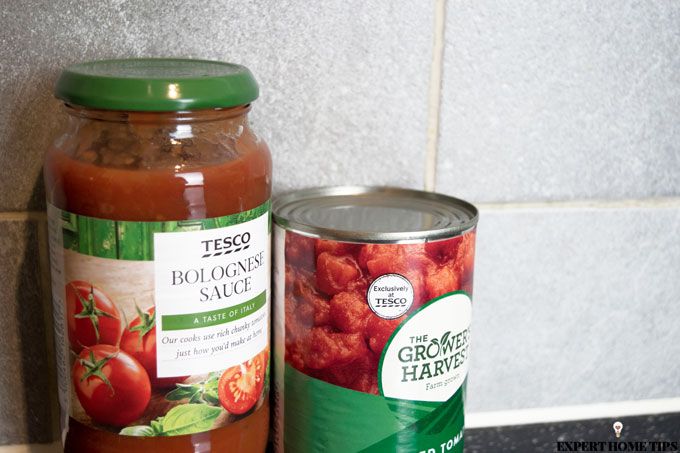
Whether storing food or drink, you should give all cans and jars a wipe before you open and consume the contents. During transport and warehouse storage, cans and jars can become dusty and covered in bacteria.
If something has a long shelf life, chances are it has been sitting around for a little while and is therefore in need of a jolly good clean. The awful truth is that warehouses, where these goods are stored, can become home to a number of pests.
Even if the pests can't get into the goods, they may have crawled over them, depositing all manner of bacteria - and maybe even urine!
When you open a can or jar you risk contaminating the contents with bacteria from the lid.
How to wash cans:
Take a piece of damp kitchen towel and rub the top of the can, especially near the opening. Avoid drinking directly from cans - instead, pour the drink into a glass. If you have used a can opener, you should wash it thoroughly between uses.
6. Vegetables

Vegetables are the worst offenders and need a really good scrub before preparing or cooking. They can harbour E.Coli, bacteria, dirt and even creepy crawlies!
You should pay extra care with veggies that are sold loose as these have been exposed to more bacteria and may not be as clean.
How to wash vegetables:
Rinse vegetables under a running tap and give the surface of each vegetable a good scrub. Place in a bowl of clean water starting with the least dirty to avoid contamination. Replace the water when necessary. Peel and cook to remove even more bacteria.
If you're going to throw those peels in the bin, think again. There are plenty of marvellous ways to reuse peels.
7. Canned beans
The water that canned beans are stored in is super high in sodium. Whilst it makes a great preservative, it's not so great for your meals.
How to wash beans:
Rinse the liquid off of the beans with cold water. If you plan to saute or roast the beans then we suggest taking a piece of paper towel and giving them a pat dry.
8. Fruit skins (even those that are inedible)

This includes all of your favourites - avocado, pineapple, bananas - the lot!
You might think you can get away without cleaning them if you aren't planning to eat the skin, but that's where you're wrong.
When you cut into the fruit, the knife will drag the bacteria from the skin to the flesh inside - how gross is that?
But surely bananas are fine? Probably, but if you are handling the fruit and breaking pieces off with your fingers to eat, you'll transfer bacteria from the skin into your mouth.
To be on the safe side you should wash all of your fruit, especially fruit with edible skins.
How to wash fruit:
Most fruits can be washed effectively under running water.
What shouldn't you be washing?

1. Frozen vegetables
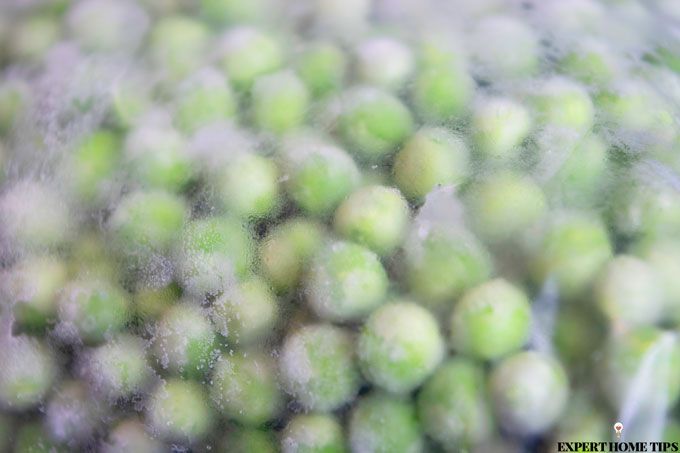
You'll be wasting time if you decide to wash frozen vegetables.
As part of the packaging process, the vegetables are cleaned and cut so you needn't worry about bacteria.
2. Bagged salads & greens
Just like frozen vegetables, pre-bagged salads and greens will have been washed several times. Did you know that you are more likely to spread bacteria onto your greens if you wash them?
Just check the packaging for "Ready to Eat" and you're good to knock up a scrumptious salad.
3. Mushrooms
You might think mushrooms need a wash, but this can ruin their texture and make them go off quicker.
Mushrooms are really absorbent, so if you soak them in a bowl of water you'll just end up with a soggy mess!
If you want to give them a light clean, you can use a damp piece of kitchen roll or a special mushroom brush.
4. Eggs

The context for this one depends on where you are in the world. In the US, eggs are processed, cleaned and then covered in a mineral oil that protects them from bacteria. This means that you don't need to wash them.
In the UK, eggs are not washed as it's believed that cleaning eggs will only help the spread of bacteria into the shell.
This means that you also shouldn't be washing them at home.
5. Raw meat, poultry & fish
You should never wash raw meat, poultry or fish.
Doing so will only spread harmful bacteria to your kitchen countertops and sink. You won't be able to kill bacteria with water anyway so it's best to just cook it.
If you're concerned about the standard of your meat and fish, buy from a reputable fishmonger or butchers.
You should dedicate your time to deep cleaning your surfaces and equipment instead.
6. Pasta
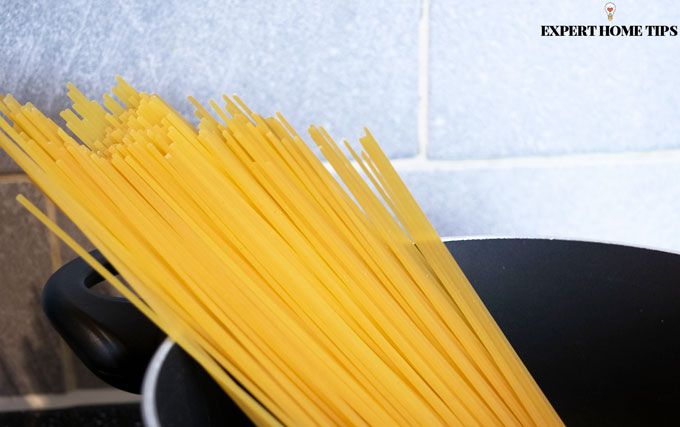
Unlike grains, you don't want to wash spaghetti or pasta. If you wash it, you'll drain away all of the starch.
You can reuse the starchy cooking water in pasta sauces for a delicious accompaniment.
Did you find any of these foods to be surprising? Let us know in the comments below!
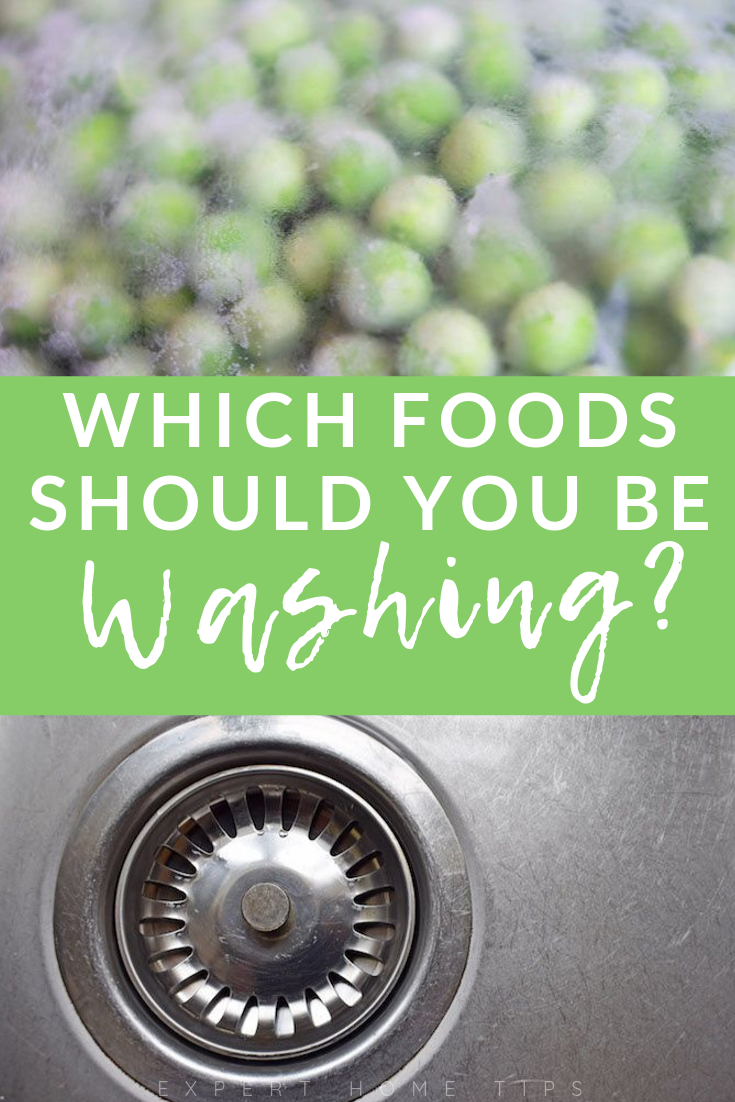
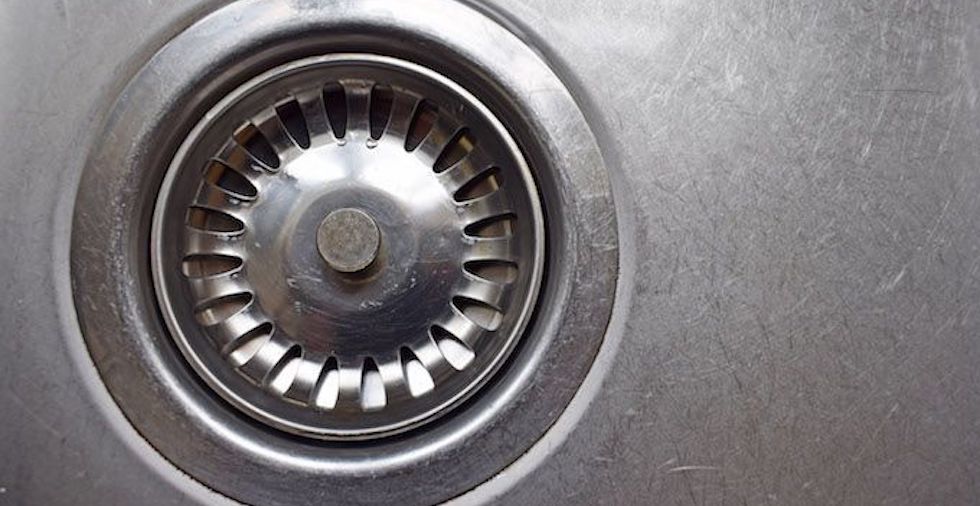
Thank you for writing such a wonderful Blog post I have found it very interesting and surprising. Especially pulses and nuts would be we of thought about washing those. I wish you every continued success in all that you do.
Thank you, Andy! Glad you found it useful.
with regard to your suggestion that bagged salad leaves and vegetables should not be washed -- surely if the water is not fresh and running , then bacterial problems can occur - plus i have watched the commercial washing of potatoes , everything gets thrown in the tank [ includes rotten potatoes ] the good quality "clean" potatoes are taken out of the stinking water , dried and pre-packed . -- not very healthy !
Hi Bernard! We're talking about ready to eat salads. We would suggest that you always wash bagged vegetables/leaves if they don't have ready to eat on the packaging. Thanks for commenting!
Keep the liquid drained from canned chick peas - this makes a fantastic substitute for egg white, which is music to my vegan ears. It can be whipped up to make meringues, and used in mant other ways - check out any vegan recipe website for more info.
Wow! That's amazing. Thank you for sharing.
I NEVER WOULD COOK RAW MEAT WITHOUT WASHING WITH LIMEJUICE,OR VINEGAR.
Hi Brenda, washing chicken and meat in acidic solutions used to be recommended as good practice. You'll find it's instructed in a lot of old cookbooks. New studies suggest that this is actually unnecessary and a bit dangerous as you could spread more bacteria around your kitchen surfaces. You might want to keep it up, but it's perfectly safe not to wash your meat. Thanks for commenting!
Hi, thanks for your post. In my opinion as a nurse you should be more worried about getting bacteria into your body than your kitchen surfaces which could easily be cleaned and disinfected. Please wash your meat,fish or poultry produce before use even if they come prepacked better safe than sorry. Don't use the same knife or chopping board for cutting meat, poultry and fish to cut your veggies, use a different knife/ board or wash the previous one thoroughly before using for your vegetables.
Hi Ben! Thanks for sharing. Out of interest, where are you from? In the UK, we don't typically wash our meat, but I know it's more common elsewhere.
A have always washed my raw meat ,fish and poultry..I do a thorough disinfecting afterwards.I NEVER before washed my dried fruits. I do buy it loose sometimes and was under the impression that it was not necessary..I guess it's never too late to learn...
I have never washed eggs as I just crack them and empty the contents. Also nuts I just eat them thought washing them would make them soggy. I need to have a rethink. Thanks for bringing this to our attention.
You're welcome, Lesley!
Regarding the advice about bagged salads etc. On many programmes about healthy eating and food hygiene etc they always stipulate that even if it has ready to eat on the bag you should always wash it before hand?! Now I’m totally confused ????♀️
Hi Mrs Hooper, anything marked ready to eat will have been passed by the FDA so is safe to eat without washing.
I wouldn't trust that. The FDA isnt infallible. The FDA has passed many "ready to eat" foods that end up being recalled because of listeria or e-coli (ready to eat salads, etc). Also, many of those "ready to eat" foods are coated in (in my opinion bad tasting) preservatives. You're better off rinsing all fruits and vegetables.
While the FDA has approved some ready-to-eat foods that have been later recalled due to contamination, it's important to note that these cases are exceptions. In addition, rinsing fruits and vegetables can help remove dirt and debris, but it may not be enough to remove harmful bacteria altogether.
Mushrooms are often covered in soil. I would suggest cleaning them under a running tap and allowing them to drain off before use to avoid too much water in your cooking. I think it's just best to avoid leaving them in a bowl of water.
Hi Raveen, yes, a quick rinse is fine - as you say.
A little bit of dirt is good for everyone. Helps you build up a good strong immune system. Obviously depends what's on your hands first.
That's right - just watch out for bacteria that can cause food poisoning! Thanks for getting in touch.
I ALWAYS wash fresh meat, chicken & fish. However the easy way is to put a colander in the sink & let cold water gently run over it. However with chicken here is a tip I was brought up on in the Jewish religion, it is called 'scalding'. You put your chicken in a saucepan in your sink, then pour boiling water over it & with a knife move it from side to side. Then gently pour the water down the plug hole. This way you do avoid splashes & bacteria, plus you have the peace of mind it is ready to cook safely. I will not eat any of the above without washing it first.
Thanks for sharing, Heather!
I always wash cans & tins, but have never thought to wash jars. Never washed dried fruit & nuts. Would that not make them soggy & wet? How can you wash seeds? I always wash everything else on the list, including ready to eat salads because I do not trust them to be properly washed & mushrooms because they are covered in soil. As 1 reader mentioned, I run them under a tap & then drain instead of soaking them in a bowl of water.
Thanks for sharing, Harmony! It's all down to personal choice.
I recently watched a documentary about food hygiene .One of the biggest causes of e coli and listeria food poisoning was found to be pre washed,ready to eat salad. The advice was to always wash all salad vegetables even if they state ready to eat. I have done this since watching it. I am in UK. Thanks for pointing out re nuts which I've never thought to wash although an aware nuts can have toxins and really interesting blogs which I always read .
Glad to hear that you enjoy our blog, Gill! Thanks for being a loyal reader.
I have stopped buying bags of salad as when I opened them, I could smell clorine which I think is used to wash them. I live in Spain but I used to detect this smell when I lived in the UK.
I've never smelled that before myself! I'll check next time I open some salad.
I always thought that Bananas and avocados did not need to be washed before peeling.
Thank you for the info on washing dried fruit and nuts, as a retired nurse I have always been very careful with food hygiene, though I did not know about the dried fruit and nuts. I will not eat egg sandwiches from a cafe as I know uncooked egg can cause salmonella or for that matter never eat raw egg in any form.
As a carer for my wife,who has multiple conditions,it was very enlightening to read! I will keep this page for future use! Thank you for the info. I hope you and your staff are safe from this outbreak. Look forward to your future emails!! Keep safe and well!!
Hi Michael! Thanks for your lovely feedback. We wish the same for you and your wife.
I always ate nuts and dried fruit without washing them and yesterday I saw my boyfriend wash some dried fruit. I tried it myself, it was a bit soggy, but it's better to be safe than sorry. Thank you so much for sharing.
You're welcome!
Sure surprised me on certain foods. Thanks for info
You're welcome!
Never was instructed to wash nuts prior to eating. Purchase Brazilian nuts weekly from Whole Foods. I will be washing them and the rest of my dried fruits.... including the dates. Thank you for the great information
You're welcome, Peter!
I always wash my fresh fruit loose or packaged in warm water with lemon juice added,leave to soak for a few mins,then wipe gently,rinse afterwards to remove any lemon flavour and gently fry before storing. The same with vegetables.Bananas,oranges etc I wipe with a cloth soaked in lemon water and wipe dry gently.
That sounds good, Debbie!
I do wash fish to rinse of the somewhat malodorous 'sweat' that it gets in contact with plastic. Plus, these days they don't seem to scale them before sale, so one has to scale them and a rinse gets the last sticky ones off. I have eaten large amounts of nuts for decades without washing. I've seen film of small mountains of grains, etc being walked over by workers and moved with tractors. Also dried figs washed in dirty brown water and lain on old cloths to dry again. I still don't wash them though and doubt I'll bother to either. You could always buy in shells or pick your own. Phytates are in many grains, nuts, beans etc. but not just on the surface. Soaking overnight or cooking in some cases is supposed to degrade them. The main issues are locking up minerals and potential inflammatory effects. Probably more of an issue with wholegrainsI'd suggest, as people tend to eat more bread than nuts.
Thanks for sharing! Ultimately, the decision to wash or soak these foods is personal, and individuals should make choices based on their preferences and health considerations.
Some of your suggestions are really over the top although some of them are right (don’t wash eggs is right for example. And I really think the Americans are crazy. I lived there and witnessed them clean their chicken with bleach!) People with a normal immune system need to stop being so paranoid and afraid of every little bacteria. So now we have to wash bananas? I am 52 and have never got sick by not doing so. But I do wash fish as it usually is full of scales and smelly, same thing with pork with small pieces of bones.
While some food safety practices may seem excessive, following local guidelines and considering vulnerable populations is essential. Personal preferences can play a role, but they should be balanced with the need to minimize foodborne illness risks for all.